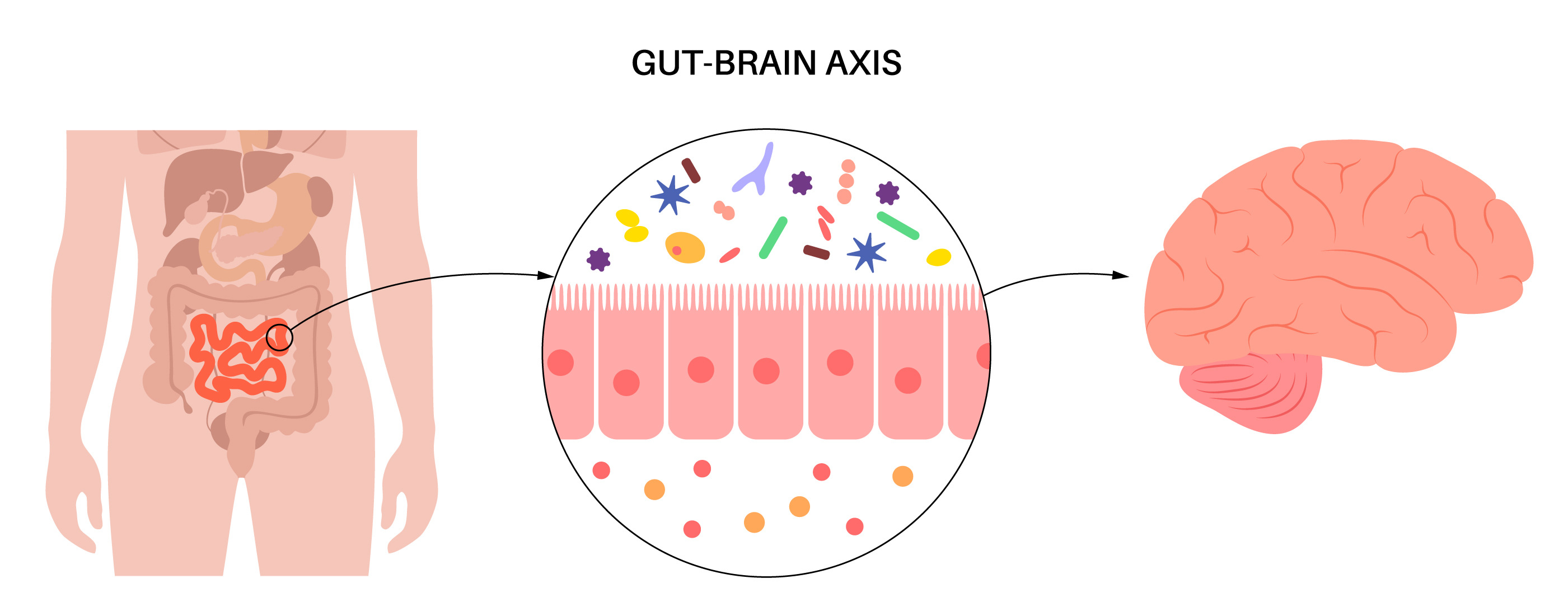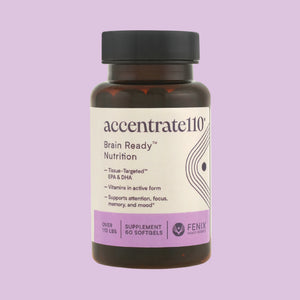Probiotics and the Gut-Brain Connection

It’s amazing that there is still so much we are discovering about health, nutrition, and the human mind even today. One such area we are learning more about is the Gut-Brain Axis.
The gut-brain axis is simply your gut and brain communicating back and forth through the enteric nervous system. Because of this communication, the billions of microorganisms that inhabit the digestive tract, called the gut microbiota, can influence various normal mental processes and phenomena and is involved with mental and neurological health.

Recently, it has become well established that the gut microbiome influences development and physiology, playing a key role in the balance of health. Emerging evidence has also suggested a role of the gut microbiota in brain function and behavior as well as playing an integral part in regulating the enteric nervous system, endocrine system, and the immune system.
Over the last few centuries, the gut microbiota has experienced tremendous change from the modern transformations in diet, lifestyle, medical care, pesticides, processed foods, additives, and so on. Part of the struggle with maintaining a healthy gut arises when we don’t have a healthy diet and develop picky eating habits. So what can you do to help balance the gut in situations like these?
Probiotics, but not just any probiotics!
It's been shown that targeting specific species within the microbiota can support mental health. Certain probiotic strains have been shown to increase the levels of dopamine (supports focus), serotonin, and brain-derived neurotropic factor or BDNF (supports mood).
References:
Mensi, et al. “Lactobacillus plantarum PS128 and other probiotics in children and adolescents with autism spectrum disorder: a real-world experience.” Nutrients 13.6 (2021): 2036.
Liu, YW, et al. “Effects of Lactobacillus plantarum PS128 on children with autism spectrum disorder in Taiwan: a randomized, double-blind, placebo-controlled trial.” Nutrients, 11.4 (2019): 820.
Kong, X. et al. “Probiotic and Oxytocin Combination Therapy in Patients with Autism Spectrum Disorder: A Randomized, Double-Blinded, Placebo-Controlled Pilot Trial.” Nutrients, (2021) Vol. 13,5 1552.
Messaoudi, et al “Beneficial psychological effects of a probiotic formulation (Lactobacillus helveticus R0052 and Bifidobacterium longum R0175) in healthy human volunteers,” Gut Microbes, (2011) 2:4, 256-261
Kazemi, A., et al. “Effect of probiotic and prebiotic vs placebo on psychological outcomes in patients with major depressive disorder: A randomized clinical trial.” Clinical Nutrition, 38.2 (2019): 522-528.
Wallace C. et al., Findings presented at 13th World Congress of Biological Psychiatry. (2017), Poster P-05-015.
*(reclassified from Lactobacillus acidophilus)
These statements have not been evaluated by the Food and Drug Administration. This product is not intended to diagnose, treat, cure, or prevent any disease.
- Tags: probiotics




